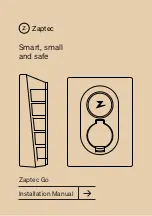
Problems with the transmission
Problem
Possible causes/consequences and
M
Solutions
The transmission has
problems shifting gear.
The transmission is losing oil.
X
Have the transmission checked at a qualified specialist workshop
immediately.
The acceleration ability
is deteriorating.
The transmission no lon-
ger changes gear.
The transmission is in emergency mode.
It is possible to shift to a gear and reverse gear only.
X
Stop the vehicle.
X
Shift the transmission to position
j
.
X
Switch off the engine.
X
Wait at least ten seconds before restarting the engine.
X
Shift the transmission to position
h
or
k
.
If
h
is selected, the transmission only shifts to one gear; if
k
is
selected, the transmission shifts to reverse gear.
X
Have the transmission checked at a qualified specialist workshop
immediately.
Transfer case
This section is only valid for vehicles with 4-
wheel drive (4MATIC). Power is always trans-
mitted to both axles.
!
Performance tests may only be carried out
on a 2-axle dynamometer. The brake system
or transfer case could otherwise be damaged.
Contact a qualified specialist workshop for a
performance test.
!
Since ESP
®
engages automatically, the igni-
tion must be switched off (the SmartKey or
Start/Stop button must be in position
g
or
1
) if
R
the electrical parking brake is being tested
using a dynamometer
R
the vehicle is being towed with only one
axle raised (not permitted for vehicles with
4MATIC)
Otherwise, the brake system can be dam-
aged.
!
Vehicles with 4MATIC must not be towed
with either the front or the rear axle raised, as
doing so will damage the transmission.
Refueling
Important safety notes
G
WARNING
Fuel is highly flammable. If you handle fuel
incorrectly, there is a risk of fire and explo-
sion.
You must avoid fire, open flames, creating
sparks and smoking. Switch off the engine
and, if applicable, the auxiliary heating before
refueling.
G
WARNING
Fuel is poisonous and hazardous to health.
There is a risk of injury.
You must make sure that fuel does not come
into contact with your skin, eyes or clothing
and that it is not swallowed. Do not inhale fuel
vapors. Keep fuel away from children.
If you or others come into contact with fuel,
observe the following:
R
Wash away fuel from skin immediately
using soap and water.
R
If fuel comes into contact with your eyes,
immediately rinse them thoroughly with
Refueling
155
Dr
iving
and
parking
Z
Summary of Contents for GLC
Page 28: ...Workshop see Qualified specialist workshop 26 Index ...
Page 388: ...386 ...
Page 389: ...387 ...
Page 390: ...388 ...
















































